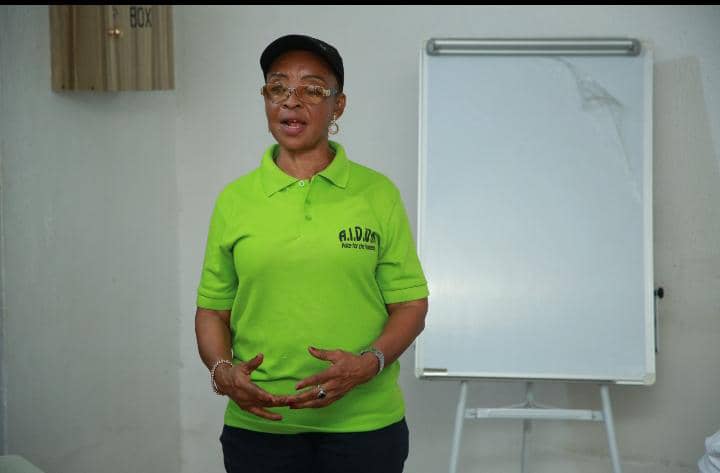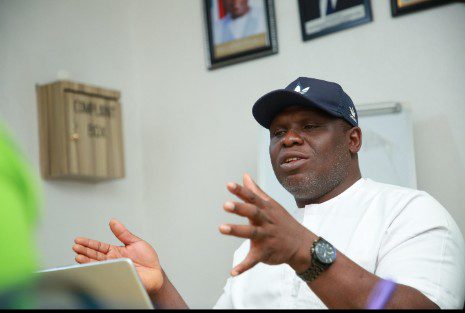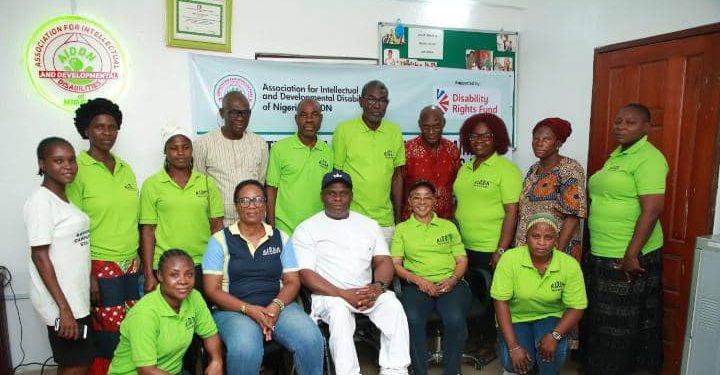In a bid to enhance operational effectiveness and strengthen its policies, the Association for Intellectual and Developmental Disabilities of Nigeria (AIDDN) recently organized an institutional strengthening training aimed at improving safeguarding measures and launched a comprehensive five-year strategic plan.
The training was supported by the Disability Rights Fund, DRF.
Joko Omotola, the National President of AIDDN, emphasized the association’s commitment to protecting and supporting children with disabilities. “Our commitment to creating a safe and supportive environment for our children is unwavering,” Omotola stated. “This training session demonstrates our dedication to upholding the highest standards of protection and care. The safeguarding policies we discuss are not merely guidelines, but the foundation upon which we build trust and ensure the safety of our community.”

Omotola also announced the launch of AIDDN’s five-year strategic plan, which represents a bold vision for the future of the organization. The plan outlines goals, objectives, and strategies for advancing the well-being and inclusion of individuals with intellectual and developmental disabilities.

The training featured a special presentation by Barrister Yusuf Oyodo, an advocate for the rights of persons with disabilities.
As the Senior Special Assistant (SSA) to the President on Disability Affairs and a person with a physical disability himself, Oyodo shared his insights on the challenges faced by individuals with IDD. “Despite being visible, many people still do not understand the complexities of IDD, and we hope that today’s event will help raise awareness and promote greater inclusion,” Oyodo explained.
Barr. Oyodo also discussed the strategic documents that have been developed as part of AIDDN’s five-year plan, which will guide the organization’s operations.
“We have developed essential documents to guide our organization’s conduct,” he said. “These include a board manual, a child protection policy, a conflict of interest policy, gender guidelines, and a policy preventing sexual exploitation, abuse, and harassment, among others.”
He further elaborated on the training’s objectives, saying, “The objective of our Board Policy Training is to equip members with the necessary knowledge and skills to effectively govern the organization, ensuring compliance with best practices, ethical standards, and relevant laws.”
The training also covered governance and oversight, policy compliance, and accountability, stressing the importance of having well-defined organizational goals and objectives. Oyodo pointed out, “Regularly reviewing our mission and overall purpose is crucial. A well-defined mission ensures that all organizational activities align with our purpose and objectives. This helps us stay focused and avoid unnecessary distractions.”
Discussions on gender equality and organizational practices were also key components of the event. Oyodo encouraged participants to demonstrate their commitment to gender equality, particularly when seeking funding. “Ensure systemic gender equality within your organization. Report on programs and projects that promote gender equality,” he advised.
Evangelist Babatunde Wilobi, the first national Vice President of AIDDN and a father to a daughter with IDD, shared his perspective on the organization’s efforts as regards funding .
“While we’ve received some support from private individuals and donor agencies, we’re seeking more partnerships with the government. Our mission is to collaborate with government agencies and donor organizations to further our cause,” Wilobi stated.
Wilobi spoke of the support received from the community, particularly during events held for children with IDD. “We are grateful for community support, particularly during our events and parties for children with intellectual and developmental disabilities. We have individuals and organizations reach out to support us, and we appreciate their kindness,” he said.
Oyodo also addressed the importance of project visibility and the role of media in amplifying the impact of AIDDN’s initiatives. “I have observed a good presence of media personnel. This indicates that the project is being publicized,” he remarked. “I trust that in the coming days, the project team will continue to engage the media, ensuring that their activities are disseminated across mainstream and social media platforms.”
He expressed confidence in the future visibility and success of the project, acknowledging the contribution of the media and donors. “Our donors also have their own media spaces and social media channels, which they will utilize to amplify the project’s reach and impact,” he said. “Overall, I am confident that the project’s visibility will continue to grow, thanks to the collective efforts of the project team, media personnel, and our donors.”

